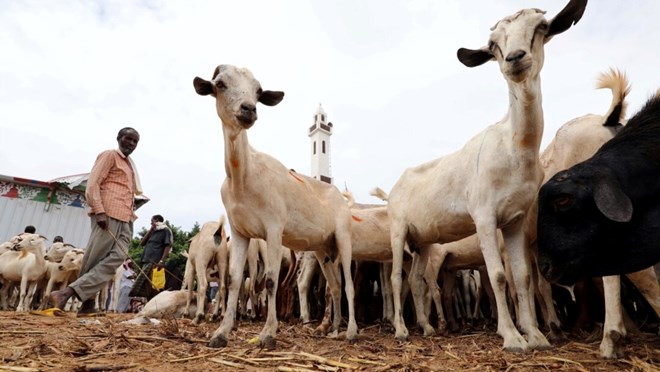According to the Sudanese Investment Corporation, commerce between Egypt and Sudan has increased since 2018, particularly in livestock and agricultural items. Sudanese exports to Egypt, however, fell to $364 million in 2020, from $469 million in 2018. Exports reached over $300 million in the first half of 2021, with cattle exports accounting for nearly half of the total.
Livestock, bananas, skins, seafood, charcoal, and scrap metal are among Somalia’s main exports. The cattle sector provides food and money to more than 60% of the country’s inhabitants. Egypt has been pushed by the Sudan situation to diversify its food import sources, potentially increasing demand for Somali livestock goods such as camel, cattle, sheep, and goat.
The violence in Sudan, a key exporter of livestock and grains to Egypt, is projected to reduce livestock and grain production and exports. Furthermore, the conflict in Ukraine has reduced corn, wheat, and other grain exports, affecting Egypt’s animal feed supply and, as a result, its livestock industry. Due to Egypt’s high population density and limited arable land, the loss in supply has resulted in increasing costs for meat and dairy products.
Despite challenges such as delayed elections, drought, supply chain bottlenecks caused by COVID-19, and increased insecurity, Somalia’s economy rebounded in 2021, with GDP growth of 2.9 percent. However, the country is suffering from severe drought, with the US government’s Humanitarian Information Unit estimating that 3 million livestock have died as a result.
Somalia must overcome obstacles such as political instability, security concerns, and drought effects in order to leverage on Egypt’s expanding food need. Somalia may grab this opportunity by investing in creative tactics, increasing production, and maintaining a reliable supply chain.
Fighting has erupted across Sudan as powerful competing military factions wrestle for control of the African nation and its future. The crisis has caused embassies to close and foreign nationals to be evacuated, with over 450 people murdered and another 4,000 injured.

